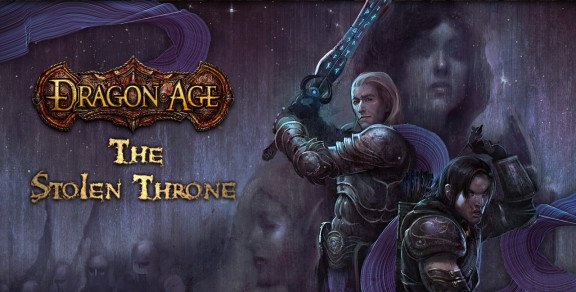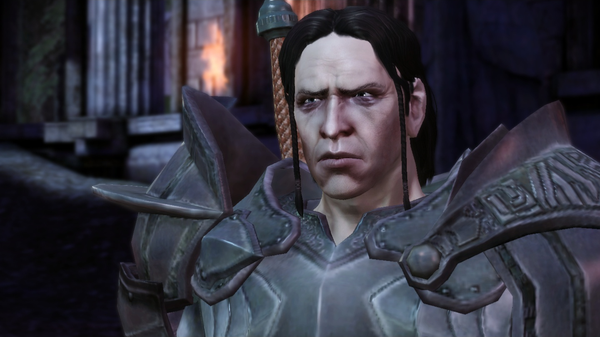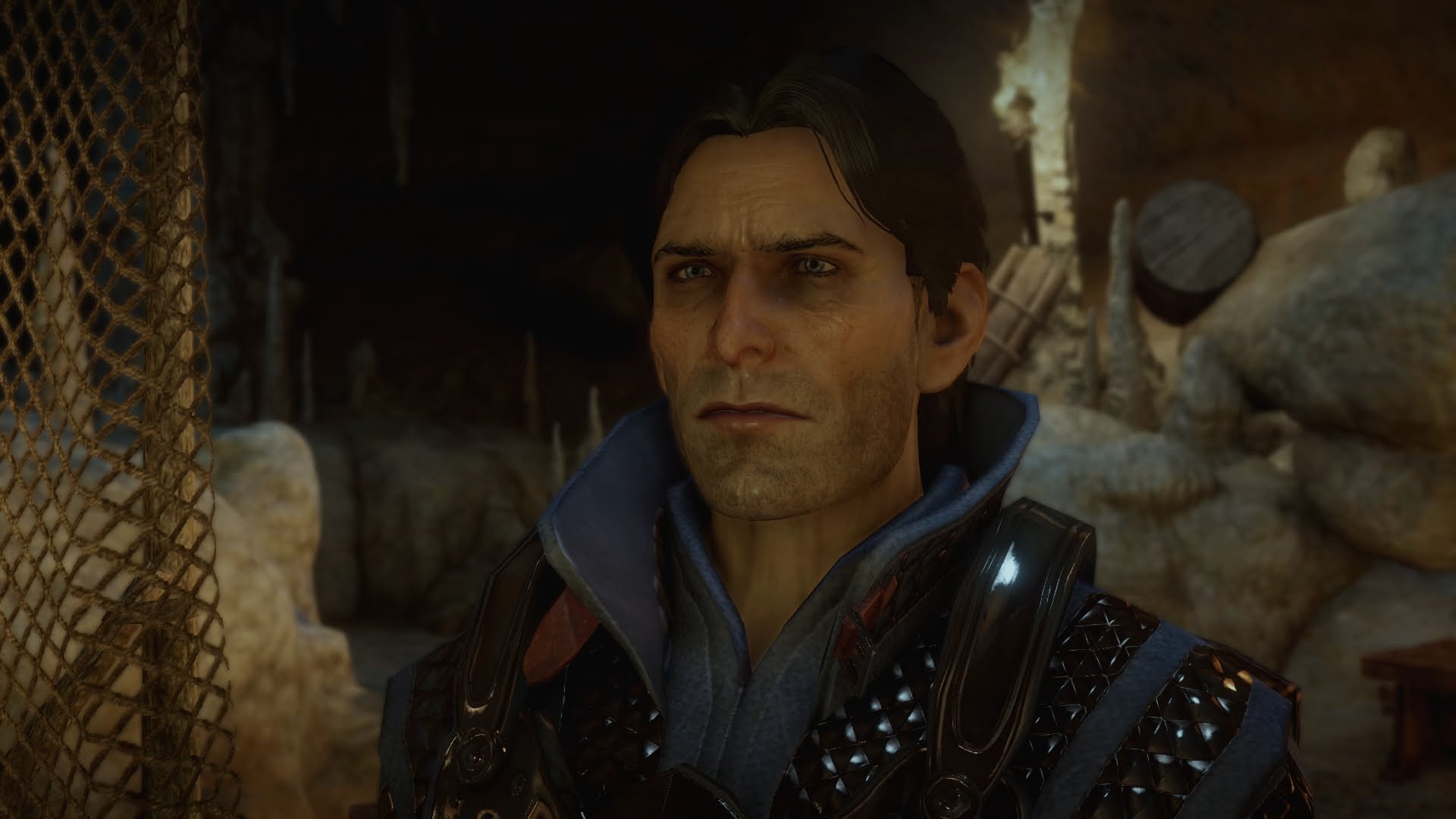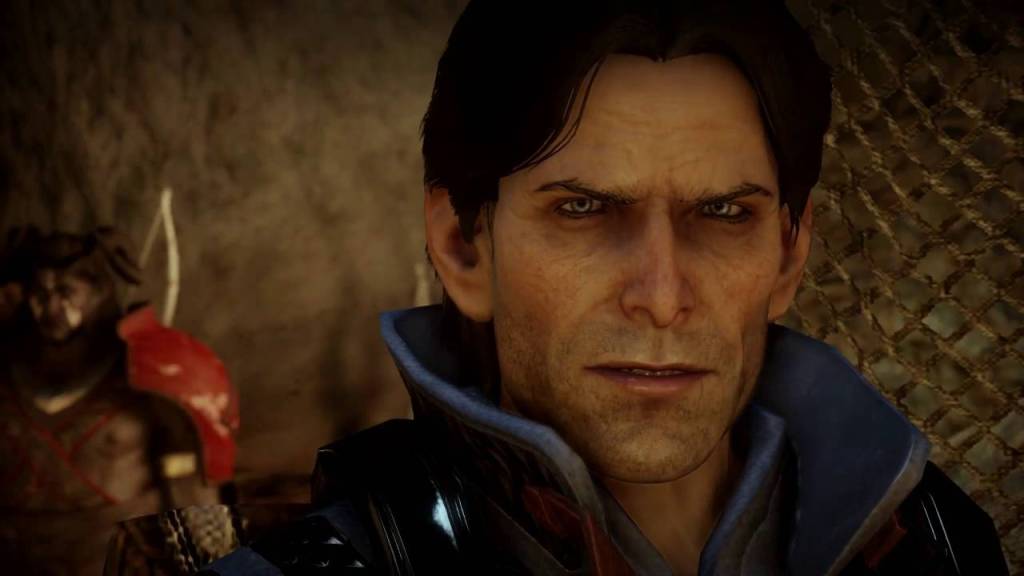
When I played Dragon Age: Origins, I fucking hated Loghain. Just hated the bastard. I hated him for turning his back on King Cailan. I hated that he was pushing for his daughter Anora to unilaterally take the throne. I hated that he ignored the Blight. When it was time to pass judgment on him, I killed him so hard. I never looked back on it with an ounce of regret. The only time I felt a twinge of regret was when I learned you could leave him behind in the Fade in Dragon Age: Inquisition. I mean, I could have had the chance to kill him again. Why wouldn’t I want to do that?
And then I got into the Dragon Age books written by former BioWare lead writer David Gaider. After reading The Stolen Throne and The Calling, I couldn’t hate Loghain anymore. In fact, I now understand Loghain so incredibly well. He’s such a tragic character, I almost feel bad for hating him in the first place. Almost.
Troubled Friendship With King Maric
Loghain first met Maric almost a day after his mother, the Rebel Queen, was betrayed and murdered by Ferelden nobles. He fled the scene and wound up in Loghain’s camp. Loghain’s father rescued Maric, knew who he was, and kept his identity quiet. He knew that the Orlesians would be hunting for Maric, and the less people knew about Maric’s presence, the better. Unfortunately, he could not predict how quickly the Orlesians would track Maric to that particular camp. Loghain’s father forced Loghain to flee with Maric while he stayed behind to fight. As a result, Loghain’s first real impression of Maric was here’s this clueless rich kid who just got my father killed. It explains quite a lot of Loghain’s surliness.
That said, though, Loghain honored his father’s last wish and stayed with Maric throughout his entire journey to reclaim the Ferelden throne. He protected Maric at every turn, and even helped his fiancee, Rowan, teach him how to fight. Loghain started to see himself as Maric’s guardian, because the boy king seriously had no idea how to take care of himself. For example, Loghain insisted the elf bard who joined them was a spy and assassin, whereas Maric decided she could be trusted enough to sleep with her. It was “such a shock” that she tried to kill Maric.
No matter how many stupid mistakes Maric made, of which there were plenty, Loghain stood by him. He scolded him plenty, but still stood by him. Part of it was because his father asked him to, but by the end of the book it was because he cared about Maric. They were friends for sure, but they were more like father-son than real friends.

“There Will Be No Blight, Maric.”
Despite Loghain’s major reservations, Maric agreed in The Calling to allow the Grey Wardens back into Ferelden. They were banished 200 years prior for interfering with Ferelden politics, which is the simplest explanation one can give. Loghain hated the Grey Wardens’ involvement with Orlais, and well, after The Stolen Throne, it’s quite understandable. Rather quickly after the Grey Wardens were welcomed, they asked King Maric for a favor. One of their own recently had the Calling—when the Darkspawn call is too loud to ignore to the point it prevents the Grey Warden from functioning at all—and as is their custom, they sent him down the Deep Roads to end his days fighting Darkspawn. However, they sense that not all is well with this Calling, and they want Maric’s help traversing the Deep Roads. He traveled them when fleeing the Orlesians, so surely he has that map printed in his head, right?
Loghain says absolutely not and orders Maric not to go. Loghain now has his own lands as Teyrn, but after Queen Rowan’s death, he stays with Maric quite a bit. With Rowan gone, Maric once again can’t take care of himself, and now he has a baby son, Cailan, to look after. But of course, Maric sneaks out and travels with the Grey Wardens anyway.
Part of the reason why he does this is because he wants to feel useful again. He had felt lost ever since Rowan died, and not even his young son brought him joy. Another part, probably the biggest part, is that in The Stolen Throne, a witch prophesied to Maric that another Blight was coming. Loghain never believed it. He half never really believed in the Blight, and he let his feelings about the Grey Wardens impact the other half. That hate for the Orlesians was really, really strong.
So imagine what he thought of the Grey Wardens after Maric deliberately disobeyed him and abandoned his duties as king to have an adventure with them? Loghain ended up saving Maric at the book’s end because a few of the Grey Wardens he traveled with betrayed him. Loghain did not speak to Maric the entire trip back to Denerim until they parted ways. At that point, Loghain only said, “There will be no Blight, Maric,” before he stomped off.

The Infamous Betrayal
Even in Dragon Age: Origins, after he betrays Duncan and King Cailan, he tells his council that this wasn’t a real Blight anyway. Cailan wanted to be a hero as badly as his father did, and he was already bungling things yet again by working with the Grey Wardens. Even worse, Cailan was working with Duncan, one of the Grey Wardens who helped sneak Maric out of the castle. Duncan also brought Maric’s bastard baby (Alistair) to see Maric at the castle before they gave him up for adoption. In Loghain’s eyes, he has zero reasons to like or even trust Duncan.
It could be that that distrust of the Grey Wardens or his disbelief in the Blight in the first place influenced the betrayal. Or it could be as Solas said in Dragon Age: Inquisition, that when he dreamed near Ostagar, he saw “an army overwhelmed and a veteran commander refusing to let more soldiers die in a lost cause.” Most likely, it’s a combination of both.
And now you know the rest of Loghain’s story.




